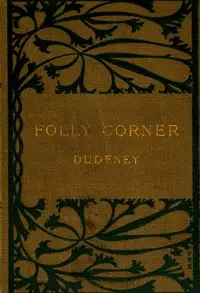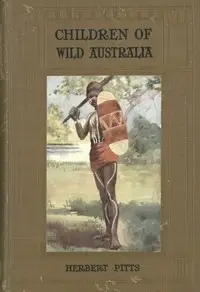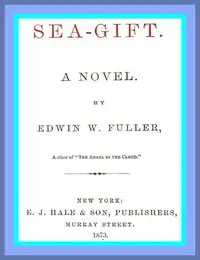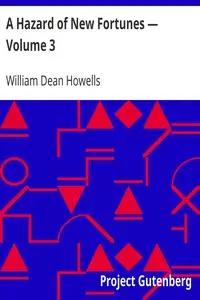"My Opinions and Betsey Bobbet's" by Marietta Holley is a comical tale from the 1800s that shines a light on the lives of women, especially marriage and the fight for women's rights, through Samantha Allen's witty observations and her clashes with Betsey Bobbet. The story opens with her reflecting on her marriage to Josiah and her duties at home. Inspired to share her thoughts on women's rights, she starts writing, balancing family life with her bold opinions and humorous interactions with neighbors, setting up a funny look at how women were viewed back then.
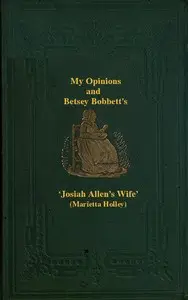
My Opinions and Betsey Bobbet's Designed as a Beacon Light to Guide Women to Life, Liberty, and the Pursuit of Happiness, But Which May Be Read by Members of the Sterner Sect, without Injury to Themselves or the Book
By Marietta Holley
In a world of old traditions, one woman uses her wit and charm to challenge what it means to be a woman, sparking laughter and reflection in her small community.
Summary
About the AuthorMarietta Holley, was an American humorist who used satire to comment on U.S. society and politics. Holley enjoyed a prolific writing career and was a bestselling author in the late 19th century, though she was largely forgotten by the time of her death. Her writing was frequently compared to that of Mark Twain and Edgar Nye. Along with Frances Miriam Whitcher and Ann S. Stephens, Holley is regarded as one of America's most significant early female humorists. Her work appealed to all classes of society. Her readers were scattered over the entire world, and included men and women of every station and grade. Her books were widely read in Europe.
Marietta Holley, was an American humorist who used satire to comment on U.S. society and politics. Holley enjoyed a prolific writing career and was a bestselling author in the late 19th century, though she was largely forgotten by the time of her death. Her writing was frequently compared to that of Mark Twain and Edgar Nye. Along with Frances Miriam Whitcher and Ann S. Stephens, Holley is regarded as one of America's most significant early female humorists. Her work appealed to all classes of society. Her readers were scattered over the entire world, and included men and women of every station and grade. Her books were widely read in Europe.

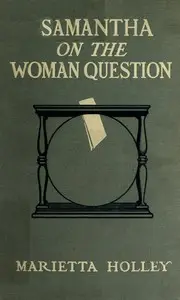
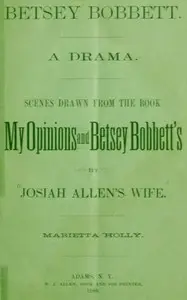
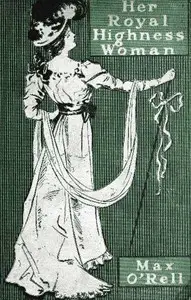
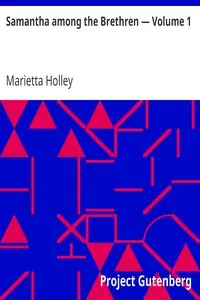
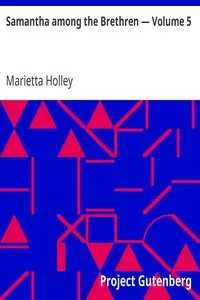
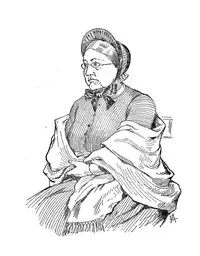
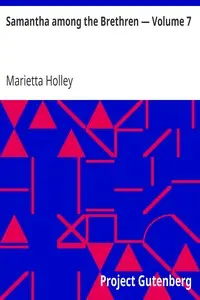
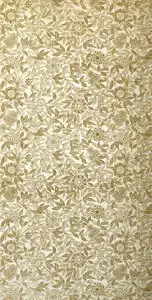
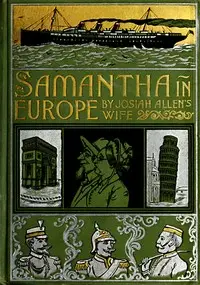
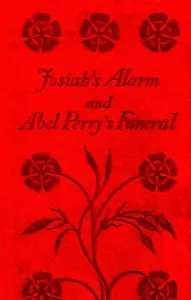
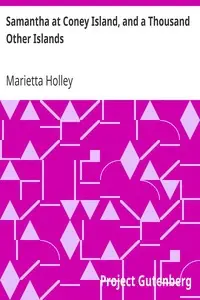
![Social Rights And Duties: Addresses to Ethical Societies. Vol 2 [of 2] by Leslie Stephen](https://cdn.a2-host.cloud/zJG1ExfUm4zfEyOBzVZnsadhHS69IK4lr7k3_axh6Ho/rs:fill:215:325:0/g:ce/aHR0cHM6Ly9zcC1hc3NldHMuczMudXMtd2VzdC0wMDQuYmFja2JsYXplYjIuY29tL2Jvb2svMzY5NTcvU29jaWFsX1JpZ2h0c19BbmRfRHV0aWVzX0FkZHJlc3Nlc190b19FdGhpY2FsX1NvY2lldGllc19Wb2xfMl9vZl8yX2NvdmVyLmpwZw.webp)
